100-76 | 75-51 | 50-31 | 30-11 | 10-1
Over the past two decades mewithoutYou have been ever present, but not necessarily in the foreground, in comparison to their peers. However, unlike many of the bands they have played alongside, mewithoutYou are more relevant than ever, even as they plan on disbanding. [Untitled] starts off unrelenting with “9:27a.m., 7/29” until “[Dormouse Sighs]” provides a brooding release from a three song barrage of chaotic harmony. Where mewithoutYou shine is found in their ability to balance emotion and volume. That balance blows past albums away with how seamlessly [Untitled] transitions from song to song. From “2,459 Miles” to “Wendy & Betsy” to “New Wine, New Skins” provide some of most graceful yet ferocious moments. [Untitled] provides a glimpse at how mewithoutYou have learned to adapt and evolve with time, especially coming off their landmark effort in Pale Horses. Look no further than the post-hardcore ballad in “Julia (or, ‘Holy to the LORD’ on the Bells of Horses),” where every element feels perfectly placed and timed. As mewithoutYou wind down, they leave a blueprint for the next decade of upstart alternative rock bands to follow. –IsItLuck?
74. Burial – Tunes 2011 to 2019
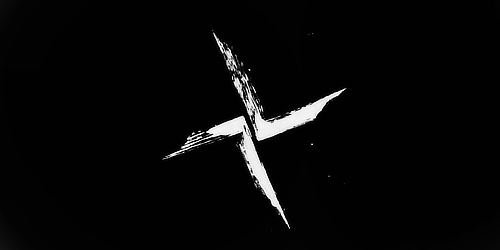
It’s all there in the name: far from skulking in the shadows or donning a trenchcoat and whispering “psst” at passersby, he has been omnipresent throughout the decade, offering incomparable mood music painted in various hues; the bright and iridescent Kindred, like a movie projected onto a screen or a colorful, polychromatic mural; lesser lauded forays into crackly, cigarette-lighter-click ambient and miniature opuses. Forays is perhaps an inapposite choice of word; how quickly we forget Burial’s ink-black self-titled , of which songs like the sublime Subtemple and State Forest, a snug safety blanket for a night spent on the street evading human comfort, form a continuity. I also draw your attention, dear reader, to his use of the word “tunes”. In an insightful interview with the late, great Mark Fisher, William Bevan (alias Burial) describes wanting to make tunes, not songs, propelled by an unknowable, fugitive past that Bevan never got to experience where ‘tunes’ abounded, propelled into the future after making a contemporaneous pitstop. Bevan could have easily saved all the material here for an album proper, making it his third masterpiece in a row; instead he reconfigures release dates to create a judiciously selected tracklisting that makes this cohere as an album, not a poorly thought out compilation. The ambient pieces sound more gorgeous and portentous, easing us in to the album, while the songs off Kindred feel more climactic and produce a rush of endorphins (ayo!), the trans anthem “Come Down to Us” has never felt more immediate, while the brilliantly-chosen closer NYC (originally on Street Halo, his first post-Untrue release if memory serves – draw your own conclusions) has never felt more ominous, more biting, posing the question: in a city of millions of people, how is it that loneliness prevails? The album feels like a rebuke to those who complained that his EP’s and singles were too exiguous; not that they were, but if they led us here few will have cause for complaint. A decade’s worth of genius recontextualized in a sprawling, consistently cohesive and brilliant package that doesn’t compromise his modus operandi: to sit back with a cuppa and make some tunes. He’s never left us, but to see out a turbulent, unruly decade with a bold statement feels, in these times, an act of kindness. Let the narrative consume you, let the nocturnal tunes guide you and listen as the songs become larger, transmogrified, by dint of the album format. It’s dark out; time to have a rave in McDonalds, or sit alone with a cup of coffee, watching revelers you’ll never join pass by. It’s your choice. –Winesburgohio
73. Shabazz Palaces – Black Up

While many have tried to imitate the surreal futurism of Black Up, none have come remotely close to what Shabazz Palaces conjured up back in 2011. Thinking on it, nothing sounded (and still sounds) quite like Black Up – a very splintered and cryptic fusion of Ish Butler’s lyricism and Baba Maraire’s fucked up, glitched-out beats. It treads the fine line between catchiness and obtuse obscurity, hidden behind a veil of mystique and lurking in the shadows. It’s no less astounding how much ground Black Up laid out for the next decade of weirdo hip-hop than it is that Shabazz Palaces then became more underrated than they ought to be for a variety of reasons – whether it is for a perceived drop in quality, or an insistence at becoming more abstract and conceptual. –Frippertronics
72. American Football – American Football (LP2)
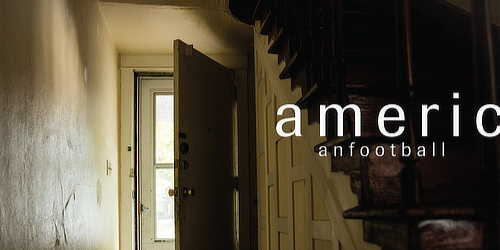
I, like many, might’ve sighed in relief upon hearing LP3 for the first time. Finally, I felt, the band were returning to form; to the atmosphere-building that made them so great in the first place. American Football were back, baby, and for real this time.
Yet, for all its great songwriting and showy instrumentation, the album – and here I step meaningfully away from consensus – fails, upon reflection, to capture the charm of the band’s imperfect comeback record. LP3 is, arguably, a little too good…Which, okay, isn’t really a justification for its being beaten out by its drunker, shorter, less focused younger brother — but LP2‘s inclusion on this list is reflective of, if nothing else, its winning charm in spite of its failings, and in spite of being showed up a mere three years later (strange decade, huh?). Because for all its failings – a failure to capitalise on the instrumental prowess of its individual members, Kinsella’s all-too-frequent erring toward lyrical triteness – LP2 is just that: charming, in flaws and all. An ode to fucking up. To one too, or two too, or three too many drinks. To being in your 20s, 30s, 40s. To always have, always will feeling old. To LP2 for being that album; and that album being, in its own little way, perfect. –BlushfulHippocrene
71. Huerco S – For Those of You Who Have Never…

To me: an unassuming companion. To me: a soft emission of colourful static that implies the existence of another plane contained within the lining of this one. To me: the pulp of old loops, playing off each other with an order that I can only assume Leeds alone understands. To me: the flash of LED lights underwater. To me, For Those Of You Who Have Never… is a natural transition into ambient music — if I have ever witnessed one — by an artist who in the past characterised his moniker with an orchard of glitches and a divergent approach to outsider electronic. Here instead loops run their natural course. These pieces cordially invite you to lose focus with them, to sink into that recondite space normally situated just out of peripheral view, and to embrace what’s been left behind by our participation in this, the breakneck cultural competition to which we perhaps mistakenly designate the label “life”. To me: a humble plea to reconsider my perpetual state of urgency, and a reminder that it is — contrary to our cultural mores — okay to sometimes just let things happen, to not impose myself on a perfect order. To you: probably something else entirely. Which is why it’s here amongst such esteemed company. –verdant
70. Ulver – The Assassination of Julius Caesar

You can never know what to expect from Ulver. The Assassination of Julius Caesar is labeled by the group themselves as their “pop” album, though it can hardly be considered as much in the context of modern music. Song lengths progress towards the ten-minute mark, and the group’s always engrossing atmosphere is in full effect. The largely ambient, abstract sounds of predecessor Messe I.X-VI.X are evolved into electro-pop epics and gothic elegies for a resounding meditation on the dark side of history, mythology, and human nature. Images of mystical visions and epic battles alike are shown to the listener by Garm’s excellent singing and lyrics. His voice suits the more accessible style of Assassination… in the same way that made their hit songs “Nowhere/Catastrophe” and “February MMX” such successes. These further evolutions for the musically shape-shifting collective makes for a highly focused and engrossing listen. Tracks will change and surprise you frequently, like the slow dirge of “So Falls the World” transitioning to an IDM section for an enchanting outro, flowing right into the wonderful melodrama of “Southern Gothic.” The Assassination of Julius Caesar is an embodiment of Ulver’s musical identity: the frequent state of flux that makes their music so interesting to get lost in, no matter what styles are being explored. They are masters of atmosphere and intrigue, and flirting with pop music has only further aided their chameleonic nature, making for one of the finest albums of the decade. –Ben K.
69. Sufjan Stevens – The Age of Adz
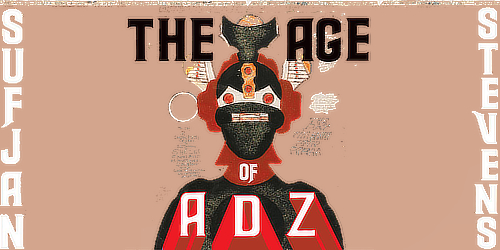
While opinions are almost necessarily split on the better of Sufjan Stevens’ works in the 2010s, it seems impossible for them to be any more divided than the initial reactions to the kid from Michigan’s first full-length after retreating from the spotlight on Illinois. Music media simply wasn’t ready for the cheerful horns and elaborate orchestrations of Illinois to be replaced by inorganic melancholy, and it showed in articles questioning everything from the direction of the album to the the mental fitness of the indie pop darling.
But in 2020, The Age of Adz doesn’t seem such a foreign entity in Sufjan’s catalog. From an arranging standpoint, sure, the electronics are new and, on first listen, a little jarring. But the sentimentality and deeply personal introspection Sufjan has poured into all of his music remains. The elaborate nature of his musical concoctions no less complex (arguably, “Impossible Soul” remains his greatest achievement), the dark tone and raw lyricism are spotlighted as counterpoints to prior albums’ optimism and kindling to division. And yet, these are the things which I find elevate The Age of Adz and Sufjan Stevens.
Sufjan has always been a visual and emotional storyteller, but The Age of Adz breaks down the fourth wall of time, place, and to a point, experience. There is no story, no metaphor. No more “fucking around;” this is an album about emotional states and thoughts. Fears, doubts, desires – all with the author directly inserted into the mix. It’s not always pretty, but it feels like an authentic encapsulation of the complexity of those thoughts and emotional states within the music, meshed with the simple feeling ripped right from the root and presented in the lyrics. And for anyone who has felt the world to be “too much” or had the thought of “I Want To Be Well” over the last decade, The Age of Adz has offered a remarkably steadfast and relatable comfort which will endure for decades to come. –AtomicWaste
68. Trophy Scars – Holy Vacants
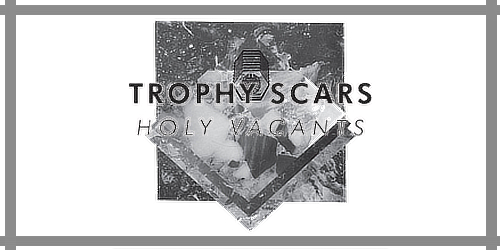
From the outset, Holy Vacants shows itself as a record of rebellion. From the opening lines of “Extant,” Trophy Scars set the tone for a concept album revolving around a bizarre, gothic narrative: “At 6 a.m. I was counting large stacks of cash. You were feasting on the body of an angel in a taxi cab. Though the driver was scared; we paid him not to care. Cheers to our youth, angel blood, and the heavens, and our reckless past.” The storyline is a fantastical one of a doomed romance and a quest for the fountain of youth that explores themes like innocence lost, grappling with one’s identity, and idealization of youth. The musical style is innovative and eclectic, a kind of gritty, psychedelic blues rock. The presence of backup singers that at times become the center point of various songs (album highlights “Crystallophobia” and “Everything Disappearing” for example) add even more color to the ambitious musical palette. The album follows a dramatic tone that often explodes into Springeteen-esque climaxes of blaring keyboards and some of the best guitar soloing you’ll hear in a modern rock album. Things get ridiculous at times, but even these moments are pulled off with self-awareness and style. Holy Vacants is the sound of a band taking their potential to the next level, and they succeeded by making something both metallic and beautiful. –Ben K.
67. Protest the Hero – Volition
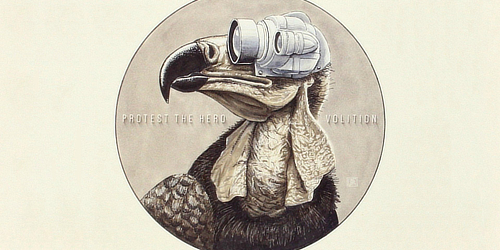
Protest the Hero never quite fit, and they knew it. “A square peg,” as singer Rody Walker sang on Scurrilous’s “Dunsel.” But something changed with Volition. Well, a lot of somethings changed — their drummer quit, their bassist was about to, and a decade-on from excitedly signing their first real record deals, the band finally left the system that had failed them for so long. When we were all teenagers, everyone around them knew Protest the Hero were destined for big things. But it took the adversity that built up through 1, 2, 3 albums on a label that didn’t fit and on tours that only sometimes made sense for them to fully realize that potential. This is the band firing on cylinders in a way they hadn’t since Kezia, and the band’s biggest evolution since the jump they made after A Calculated Use of Sound. It’s their heaviest yet. It’s their most personal. And it’s probably their best.
With their backs no longer against the wall, Protest the Hero set out on their own. In turn, they reminded me why I fell in love with their music as a scraggly teenager with facial hair and fashion sense only slightly worse than theirs. They accepted being square pegs, gave up on round holes, and made their own opportunities. They launched what was at the time the biggest crowdfunding campaign in music’s history. They brought their rabid fans into the studio — literally. And, as “Without Prejudice” not so subtly shouts, they stopped playing nice to a record industry that beat them down and tried to leave them for dead.
Even with Chris Adler playing ringer behind the kit, last-minute producer swaps and a bassist with one foot out the door, this is the most cohesive Protest the Hero has ever sounded. Lyrically, the themes on Volition carry the pace set on Scurrilous, swapping much of mythological, abstract poetry penned by bassist Arif Mirabdolbaghi in favour of Walker’s more caustic, personal approach. And while it was at least initially controversial for fans, the switch undoubtedly resulted in a more energized Walker, who shines in an even brighter light when given the chance to sing his own words, belting out the kind of infectious melodies we need to counterpoint the band’s signature technicality. Of course, while often more straightforward, Walker’s approach does anything but tread lightly. “Plato’s Tripartite” is the band’s most staunchly feminist song yet, blending the best of “Fear and Loathing in Laramie” and “Turn Soonest to the Sea” with a ripped from the headlines attack on rape culture; “A Life Embossed” spins talking points from the debate around guns into a cry for animal rights.
There’s a sense of urgency on these 11 songs that Protest the Hero hadn’t had since they were outperforming headliners twice their age back in the Underground Operations days. Their longest album yet, Volition has a bit of everything on it. “Clarity,” its first single and the band’s open letter to the Star Trek vs Star Wars debate, adds some of Walker’s infamous levity into the mix. Conversely, “Without Prejudice” is a scathing, palpably angry industry critique with vocal cues that wouldn’t sound out of place in an off-broadway musical. “Mist” is the pro-Newfie anthem I’ve waited my entire life for (because fuck Great Big Sea), and “Skies,” in many ways Voliton’s “A Plateful of our Dead,” is a coda that opened new doors for their sound.
Of course, many Protest the Hero fans weren’t drawn to the band because of their interpersonal journeys. They mostly just want to hear them shred. And shred, they do. The widdly-diddly technicality is stronger than ever here, even going so far as to not only boast the band’s first real guitar solo but to pair it with Ron Jarzombek, the seemingly fifty-fingered guitar god who inspired much of the band’s signature shredding. Chris Adler turns in the kind of performance on the drums we’d later learn Lamb of God was holding him back from, and the interplay between infectious melodies and brain-scratching technical wizardly has never clicked as effectively as it does here. Throughout Volition are the kinds of contrasts that only Protest the Hero can pull off, at one moment crushing through a bellowing breakdown, at another whizzing frenetic fretwork around soaring vocal runs. As always, theirs is a sound that’s qualified as something different depending on who you talk ask — it’s metal, mostly, but it’s also punk, and also progressive, and also kind of pop-y. It’s, for lack of an easier descriptor, Protest the Hero.
7 years and one EP later, we’re still waiting for a proper follow-up album. And it makes sense that it would take this long — while the actual album may have been recorded over a few months, Volition is the culmination of more than a decade of Protest the Hero fine-tuning their sound and fighting for a place in an industry that didn’t seem to want them. After showing that the feeling was mutual, I think they’ve earned a little fucking patience. –Tyler
66. Idles – Joy as an Act of Resistance

This album’s proclamations of positivity in the face of toxic masculinity wouldn’t resonate if the music didn’t. But Idles don’t blur the lines of beige pop-punk like the FEST adoring tri-state clones oversaturating Punknews.org’s news feed. They’ve been compared to Billy Bragg but I first saw them, upon being showed the video for “Mother” years ago, as an almost authentic heir to the Sex Pistols’ throne, sans artifice and stripped of its Vivienne Westwoods sheen. Frontman initially Joe Talbot struck me as someone not to be fucked with. He was intimidating, bearing his teeth in an exaggerated grinning scowl. That’s a first impression Talbot’s no doubt used to, and it’s something he and the rest of Idles aimed to break. On Joy as an Act of Resistance, that conflict is the thread that ties everything together. The music is in a constant tussle with the message, contrasting the oafish stereotype of their punk backbone and bellowing snarl with well-preached sermons of life and love and loss and being generally good instead of bad. The only synchronously aggressive moment is when Talbot comes to our defence on “Television,” barking “LOVE YOURSELF” after twisting the protective hypothetical: “if someone talked to you the way you do to you, I’d knock their teeth through.”
Joy as an Act of Resistance is also a strikingly British sounding album, with the Bragg comparisons tight-roping across Doc Marten-stomping nods to classic working class Oi! and, on “Scum,” what sounds like a drunkenly slurred football fight song. Everything about Joy as an Act of Resistance is immediately familiar to anyone who grew up throwing elbows in barrooms and concert halls. Only this time, when the band talks about looking after each other and picking up anyone who falls, you actually believe them. There’s no cynicism on this album, and fuck is that refreshing. –Tyler
65. The Knife – Shaking the Habitual

Where do I even begin with this record? A swan song quite unlike any other, and in a decade rife with them, The Knife’s final album Shaking the Habitual is akin to a jigsaw puzzle, to put it in layman’s terms. Seven years on, there are still things I discover when I sit down to listen to this and I find it so damn incredible such an album could exist. It thrives on repeated listening and rewards you for doing so. Throughout the years, its contents has always found a way to reveal its mysteries to me both subtly and in outrageous fashion. Take “Full of Fire,” the masterpiece that it is, which immediately forces you to see things from the duo’s eyes – “Get the picture, they get glory / Who looks after my story?” – and to bear witness to a world of ugliness, slimy characters and horrendous injustices. Mind you, The Knife’s journey into the wonder of weird and the esoteric had been ongoing, but had certainly reached a peak in the oft-underrated Tomorrow, in a Year; but they used a more cold, kitchen-sink esque approach to Shaking the Habitual, something that more or less set itself apart from anything else they had done – let alone anything that anyone else put out that year. This is music that lives on forever and rightfully so. –Frippertronics
64. Jason Isbell – Southeastern

I’d have a hard time telling you the last time I listened to Southeastern in full. It’s just a part of me now, every chord and lyric etched in my mind. If it was possible to wear out .mp3s like vinyl, I definitely would have done it with this record. Though it’s hard to believe it now that Isbell has received so much critical acclaim, the album’s success and quality were hardly assured before release. Since his ignominious departure from Drive-By Truckers, he had released a few mediocre solo albums whose best songs couldn’t come close to the quality of “Decoration Day” or “The Day John Henry Died”. Then, he sobered up and found a good woman in Amanda Shires, the inspiration for the starkest, most beautiful love song ever written, “Cover Me Up”. From there, Isbell addresses addiction, life on the road, and cancer (with “Elephant”, the song where “the adults cry and the kids learn the f-word,” according to Isbell). All the searching ends with something like redemption and a hard-won satisfaction with a “relatively easy” life. –Channing Freeman
63. Ben Howard – I Forget Where We Were
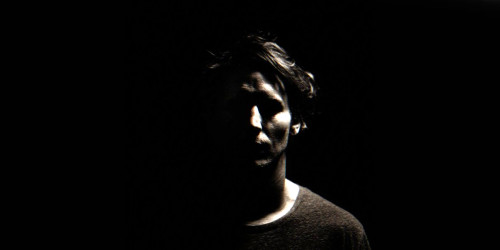
When does I Forget Where We Were stop being “a new one from that Every Kingdom guy” and start becoming one of the best albums of the decade? I seem to have a different answer depending on the day, phases of the moon, how much or little I want to pack up my entire life and move to Canada at the given time of listening. You could argue it’s not until that bridge in “End of the Affair” drops in like the end of the world, Howard screaming into his guitar pickup like nothing else has ever been as important as what he’s saying now. Then again, there’s “Time is Dancing”, the most elegant mix of shimmering guitar and shoegazey ambience, taking a melody that could have graced a Top 10 folk pop banger and submerging it in half-seen glances across a room. Is it the defeated shrugged shoulder of “Conrad”, surely the prettiest melody to grace a heartbreaker of a line like “we could never be the change to the weather and the sea and you knew that”?
All valid swings, but as the decade wore on and folk pop died an ignoble death, I found myself returning to every second of this album like it was gospel. From the first seconds of “Small Things”, that foggy, desolate guitar tone makes it clear that this is no Top 40 chart-chaser album. From the chorus of “Rivers in Your Mouth”, we know that this album is something of an exorcism – an uncomfortable, even harrowing bloodletting from an artist most assumed had aspirations set slightly higher than the Ed Sheeran level. (Those people clearly never heard “Depth over Distance”, but I digress). Ben Howard didn’t write I Forget Where We Were for anyone but himself, but in between the cryptic vagueisms of Noonday Dream and the more straightforward writing of his debut, he struck a perfect balance that approaches universality. Even with his now-signature imagery that seems to wander in and out of clarity, some chemical reaction between the melodies and lyrics on this album can only reasonably be described as magic – the aforementioned “Time is Dancing”, despite sounding like a folk song being played to you down a haunted hallway, nonetheless cuts right to the bone with a line like “now she’s caught between what to say and what she really means. And I am finally colouring inside the lines that I live between”. –Rowan
Back in 2018, even for all the praise I heaped upon Aviary and its mastermind, Julia Holter, there were still things within its confines that I had yet to wrap my head around. I had gone on about things like ‘majesty balladry’ and something along the lines of ‘highly indulgent’, but that didn’t truly say enough about the album as a whole. When it comes down to it, for all the love I have for it, there’s so little to be said that hasn’t already been said. It’s an album truly ahead of its time, it’s something people will spend the next decade catching up to, and so much more. That can be said for a dozen other albums, but it applies very much to Aviary. It still is Julia Holter’s finest hour, that’s not necessarily up for debate, but there’s so much more to it than tossing some word salad around and calling it a day, is it not? Julia Holter, for a lack of a better word, was truly onto something magical with Aviary. –Frippertronics
61. Daughters – You Won’t Get What You Want

By the time the Daughters self-titled hit shelves, the band had already broken up. They hated it, and it seemed they hated each other. Naturally, it was their best yet. Further abandoning the white-belt spasticness that defined their earlier work, Daughters played at a different pace; jarring not in its stuttering time skips, but through the contrast of guitar work that was eerily reminiscent of something Luc Lemay would play in Gorguts and vocals that sounded like Nick Cave pleading for his life. But for a few years, that was all we’d get; Fang Island was a fun consolation prize, but I wanted more Daughters and less “Dragonforce for people who buy LCD Soundsystem box sets.” Fang Island was fun, self-described as the musical embodiment of “everyone high-fiving everyone,” but the nastiness and discomfort were desperately missing. Thankfully, You Won’t Get What You Want belies its title. With Hydra Head effectively reduced to just an e-store, Daughters landed on Mike Patton’s Ipecac, a perfect fit for them. Nick Sadler’s guitar-work often feels like the six-string equivalent to Patton’s legacy of belching squeals and contrasted croons, and they waste no time reintroducing themselves on the album. This time, the pace is a little more meandering, not quite bordering on Young Windows turf as it is stomping through and staking a flag on it. But the pace shifts as fast as it needs to, most notably on “The Reason They Hate Me.” Maybe my favourite song of 2018, “The Reason They Hate Me” runs like a temper tantrum, the lyrics shouting “don’t tell me how to do my job” like a boiling point from a disgruntled employee and guitar work in the hook that immediately reminded me of a toddler incessantly playing with their snowsuit zippers. It sounds crazy, but it works. But then, at their best, the same can be said for Daughters. For me, Daughters was a near-perfect album. How do you follow something like that up? This is how. –Tyler
60. The Dillinger Escape Plan – One of Us Is the Killer

When you have a discography as strong as The Dillinger Escape Plan’s, there’s always going to be difficulty in trying to pick a favourite album of theirs. However, I think One of Us Is the Killer‘s biggest merits, and its distinction, comes from how organically it bridges the older sounds with the newer ones. There’s an equilibrium between mind-bending, visceral guitar work and accessibility; harsh vocals and unabashed melodic hooks. Just when you think the album is sitting comfortably, it pulls the rug from under you and takes you into a completely different direction. It has the experimentation of Ire Works mixed with the impeccable songwriting of Option Paralysis: face-melting, schizophrenic guitar noodling backed up by punishing breakdowns and punctuated rhythms. It’s TDEP, but it’s the band at their sharpest, tightest and most uncompromising. One of Us Is the Killer represents a band in complete harmony with itself – comfortable with everyone’s way of thinking and playing. The final product tightly rolls up all of their previous achievements to make one of the most well-balanced, unrelenting and exciting excursions of their career. Personally, I think this is where the band should have ended their journey, because it displays everything that makes the band so good, while, ironically, elevating the album to a level that feels more celebratory and tight-knit than Disassociation. –Simon
Liz Harris, under her Grouper moniker, creates music so unadorned and unembellished that its dissemination blurs basic components into obscured ambient sceneries. Ruins, however, is flung far from the listless world we’re used to. It flips the notion of what a Grouper album should be; her typical indiscernible brew becomes jagged and perceptible, with hard lines and clear sounds. Crickets chirp and a post-blackout microwave beeps in an echoed cadence; floorboards creak and room noises hum quietly. Her piano and voice wander among these broken scenes, much like the seaside ruins which inspired the album’s documentation. In their nakedness, those crickets and beeps are like us—a minor audience, like ghosts in the ruins. –Eli K.
58. Carly Rae Jepsen – Emotion

There’s nothing quite like beginning a run to “Cut to the Feeling”. I’m no expert, but I’m pretty sure what they call ‘runner’s high’ is the same thing as the technicolour endorphin rush you get when Carly Rae Jepsen’s music truly hits – like when “Cut to the Feeling” scrapes the upper limit of how catchy one hook can feasibly be. And yes, I’m aware the song isn’t actually on the album this blurb is about, but in many ways it feels like all of Emotion‘s unvarnished brilliance packed into three-and-a-half minutes, a quick minimix if you don’t have the time to listen to the whole album.
Maybe that’s unfair. After all, one of the reasons we all love Emotion is that Jepsen and the indispensable Dev Hynes pack multitudes below the album’s shiny neon surface. Take “Let’s Get Lost”, in a pinch the greatest song on the album, which slows down the pace of the album just enough that you can really take in the unbelievable satisfaction of that melody’s resolve, “maybe you’ll take the long way home”. Take “Favourite Colour”, in a pinch the greatest song on the album if it made the cut, a swirling rush of glimmering dream pop that comes the closest to actualising the feeling of just beginning to fall in love that Jepsen sings about constantly. Take “LA Hallucinations”, which darkens the album’s 80s nostalgia into something resembling social commentary, jarring against Jepsen’s constant themes of love and infatuation in a way that makes it unforgettable.
The way these songs add shade and shadow to the straight bops – “Boy Problems”, “Making the Most of the Night”, the perennially unheralded “Gimmie Love” – is the album’s secret sauce, even more than Hynes’ pristinely fine-tuned production. Emotion, then, is not an endorphin rush straight to the runner’s head for 44 minutes, as much fun as that sounds. It’s a push-and-pull between the naive, schoolgirl-innocent love that Carly Rae Jepsen’s singles would have you think is her only mode of writing, and a more considered, subtle approach that weaponises the onslaught of perfect melodies against the listener in a way that approaches brilliance. –Rowan
57. The Smith Street Band – Throw Me In The River
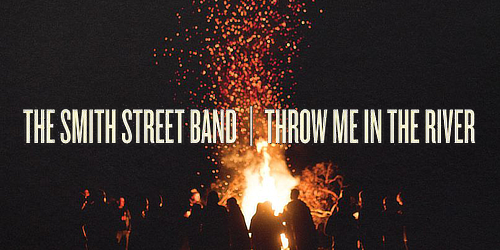
For years, I considered No One Gets Lost Anymore The Smith Street Band’s magnum opus. It possessed a certain rawness their other albums didn’t – a more human feeling that I clung to. From my perspective, their debut couldn’t be topped, and I was sticking to my guns. Then, a few months ago, Throw Me In The River just clicked. There’s really no other way to explain it. Sometimes, it’s the albums that hit you like a semi-truck that feel the hardest to justify. It’s not that I ever disliked the album – it was always a stellar second behind their debut – but it took several years of digging beneath my skin to fully grasp all of its cathartic energy.
Full of massive guitar riffs and a thick, hazier production, Throw Me In The River is a grower in disguise. It has songs fit for immediate consumption – evident in the flashy, to-the-point guitar noodling in “Surrender” – but much of the album revels in the slow-burn. There are certain moments that have always floored me; I get a giddy feeling in my stomach every time Wil completely loses his shit in the title track. Yet, six years later, the album’s depth only continues to extend deeper with each listen. “Something I Can Hold in My Hand” has become my go-to Smith Street track. Everything about it is flawless – the phenomenal lyrics, the crawling build – all leading up to that intense moment when the drums and guitars finally kick into max capacity. Those important few seconds give you a reinvigorating feeling that simply can’t be matched. On the other hand, “I Love Life” have so much going on during its hefty length that it’s all too easy to miss some of the unique touches throughout. In between Wil’s outbursts is perhaps the strongest instrumental stretch of the band’s career: bright guitar grooves take the reigns in an extended midsection that really sucks you in.
I could go on and on with the many examples of how this album continues to excite me, but I’d also be lying if I didn’t admit there’s a personal attachment here. The same can be said of any album by The Smith Street Band; they didn’t land multiple entries on this decade list without sparking specific, meaningful connections with many individuals. Throw Me In The River has become the Smith Street album for me. It’s the one that’s stood the test of time – the power of its grasp on me only becoming apparent as I closed the chapter on the decade. –Atari
56. Haley Heynderickx – I Need to Start a Garden

You’d be doing a disservice lumping Haley Heynderickx in with the rest of Spotify’s patented “Women of Acoustic”. Not because she’s not a woman, and not because her music’s not often acoustic. But because the label is – as for many other artists in the playlist and broadly defined acoustic songstress genre – a tad reductive. What use to lump Heynderickx in with Julien Baker or Phoebe Bridgers (both immensely talented artists, though for far different reasons) when she’d be far more at home (I think) alongside Jackson C. Frank, Bob Dylan, or – for the sake of pinpointing more modern contemporaries – the ever-talented Tallest Man on Earth?
Regardless, though, of the lumping together of artists not of the same skill or ilk – merely age, gender, and instrument of choice – misidentification of Heynderickx’s talents nevertheless signals the songwriter’s capacity to fit in amongst the crowd in spite of (what I believe to be) a penchant for uniquely varied and mature songwriting; I Need to Start a Garden is testament to that. Likewise, the audience to her performance of Frank’s ‘Blues Run the Game’ in Melbourne last year was the quietest I’ve been in since Baker’s in 2016. Maybe there is some some correlation, then; maybe it’s the capacity to form and gather, captivate and enrapture community. What else matters? –BlushfulHippocrene
55. Frank Turner – England Keep My Bones
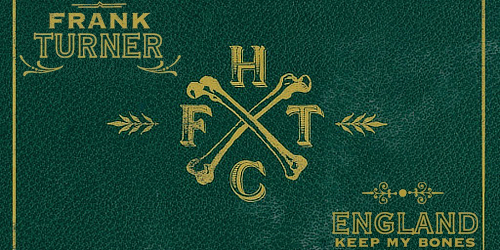
England Keep My Bones is both a love letter to Frank Turner’s home country and a farewell to the plucky folk-hero persona that he cultivated in his early career. It was here that he and the newly named Sleeping Souls came into their own as a band, with Matt Nasir’s piano a particular highlight. It’s just hit after hit after hit in a way that he hasn’t been able to replicate since, and perhaps not even before, since I’d argue that this is his best album. Even his sometimes-hokey lyrics don’t bother me as much as they would come to on later albums. (“Now who’d have thought that, after all, something as simple as rock ‘n’ roll could save us all?” Well, just about every rock critic for the past 70 years, Frank. But it works.) The truth is, I’d give him a career-long pass for writing what is still one of the greatest songs ever in “I Am Disappeared”. Though Frank has released strong records since 2011 – and certainly many strong individual songs – it is clear that he’ll never be able to sound quite like this again, like the voice of an ancient land and all the people who have lived there, past and present. –Channing Freeman
54. Run the Jewels – Run the Jewels 2
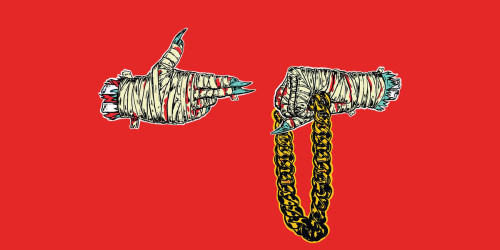
You just have to admire the level of confidence acclaimed rap duo, Run The Jewels, flaunt on their second effort. Kicking things off with a cocky statement of reassurance from Killer Mike, Run The Jewels 2 is an over-the-top blast right from square one. It’s the kind of theatrical and manic listen that would crumble in certain hands, but thrives under the precise, creative touch of El-P. Grabbing your attention is one thing, but it’s entirely another to hold it consistently across over 40 minutes. This is what makes RTJ2 such an exciting listen: Killer Mike and El-P don’t stop pulling rabbits out of hats until the curtains close. The songwriting is flashy but potent all the way through with smart and unexpected stylistic choices. Just when you think the album is slowing down with “Crown”, that electric guitar riff hits you out of nowhere… oof. Used sparingly, these little spurts of guitar add a lot of character and depth to the track. On the other hand, the unique beats in “Lie, Cheat, Steal” sound like they belong in a retro SNES game, and I’ll fuck with that. As vibrant as its red album cover, RTJ2 is an easy, deserving choice for one of the decade’s most memorable hip-hop albums; you can’t deny these two share a special chemistry together. –Atari
53. The Menzingers – After the Party

What strikes me most about The Menzinger’s After the Party is, as most critics have pointed out by this point, the gracefulness with which the band have aged. Unlike many others in the genre – punk being, perhaps, a distinctly young man or woman’s game – the band are, on their most recent classic, true to the sound that’s defined them since the early 2010s with Chamberlain Waits and On the Impossible Past. (I am shocked but not too disappointed that this album placed higher than the latter of these, though I do wonder whether that’s ultimately reflective of the median age of staffers.)
One might argue, of course, that this oughtn’t be difficult for a band whose music was never that immature to begin with (for better or worse, there’s no “Fuck a Dog” in this pop-punk band’s back-catalogue). But even so, the band’s members handle their respective 30s-life crises with a striking amount of nonchalance, translate them into music with a charming amount of balance and composure. Take lead single “Lookers” on which Greg Barnett sings fondly of a former self and lover. Though he vows to hold the “teenage memory […] till eternity”, he nevertheless acknowledges it as just that – a memory, frozen in pictorial form; remembered, not to be erased or dismounted by the future, though barely recognised, not as familiar as it ought to be; sad as a result, but not quite, and maybe even sometimes a little bit hopeful.
Fan favourite “After the Party” is likewise critical of excessive romanticisation of the band’s 20s lifestyle; the chorus’s realisation (“after the party, it’s me and you”) could do with a “merely” somewhere at the center, though is obvious enough in its on-the-nose departure from “the sex, […] the drugs, [and] the rock and roll” (m/ m/ m/) to gets its point across. (Barnett deals with the issue of memory beautifully throughout the album, and with a breathtaking amount of poeticism.) Yet, in spite of this, “After the Party” is, along with the album to which it give its name, fun as heck and not to be taken too seriously. That’s the balance. “Only a fool would think living could be easy”, but After the Party – the afterparty – isn’t all doom and gloom. The album’s final line, “In vibrant hues and subtle brush strokes of memory / The life I’ve painted I’ve sold for a quick twenty”, is maybe a little too real; it’s also extremely goddamn funny. –BlushfulHippocrene
52. Anathema – Weather Systems

My introduction to Anathema was 2010’s Sputnik darling, We’re Here Because We’re Here. While I immediately fell in love with the album’s bright and airy approach adding a breath of fresh air to the metal pool, I ultimately felt it lacking something. In retrospect, I’m not sure if it was a bit of grit, a little more direction, or what – but Weather Systems was the answer to that last little bit of “oomph” I’d been looking for.
From the introductory arpeggio of “Untouchable, Part 1,” it’s obvious that Weather Systems is incredible. The call and response duet of Vincent Cavanaugh and Lee Douglas throughout the two “Untouchable” tracks is simply haunting, and the change in direction from desperate pleas and frenetic acoustic picking to delicate piano and dark serenade between Part 1 and Part 2 while maintaining the theme is both immaculate and beautiful. “The Gathering of the Clouds,” “Lightning Song,” and “Sunlight” all build on the same theme and nuances of “Untouchable” while raising the tempo and the mood, carefully orchestrating an album that begins in a grounded, if elaborate position, and continues to propel itself skyward before coming back to earth with the darker, rhythmic-focused “The Storm Before the Calm” and “The Beginning and the End” which are far simpler get lost in without over-analyzing.
Ultimately, while We’re Here Because We’re Here feels more airy, golden, and heavenly, the pivot from fragility to a more proportionate balance of heaviness and a more realistic tinge of blue in the air gives the more terrestrial tetherings of Weather Systems the nod as the superior Anathema album of the 2010s and acknowledgement as one of the decade’s finest. –AtomicWaste
51. Julia Holter – Have You In My Wilderness
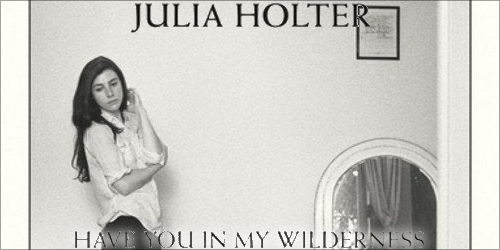
We at Sputnik love Julia Holter. If you counted votes for an artist and not their respective entries into a list as this one, Holter would land in the top 10, no contest. We champion this songwriter, and I would stress the word premier when discussing her stature. Has any artist navigated this decade from their humble bedroom beginnings with as elegant and impressive an ascent as hers? Which is to say, this is the last you will see of Ms. Holter representation. The diversity of opinions on this list speaks for itself, but Holter is a special victim of her own talents: we are all pretty evenly split on which album, exactly, represents her best.
With all due respect to the much weirder epics Aviary and Loud City Song (2013’s AOTY winner), here is a work of almost overwhelmingly ornate, sun-bleached beauty, full of strings and rhythms that vibrate with an intensity that creates cacophony even in stillness. Holter brings her impressionistic bedroom synth-pop to full-tilt symphony with a flair that would consume egos twice her size. First single “Feel You” is a perfect encapsulation of Holter’s strengths across a discography full of revelatory pop writing, and that of Have You In My Wilderness‘ unique strengths therein, where the sunny disposition and curlicue embellishments braid together with Holter’s craftiest lyrics to create short stories of complicated and memorable characters. Every listen (hundreds later for this writer) is nothing short of magical. –plane

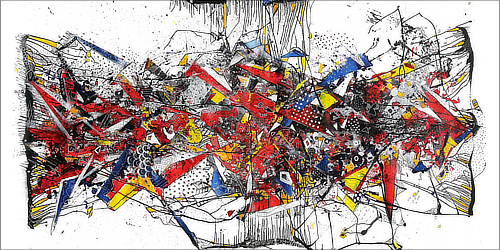
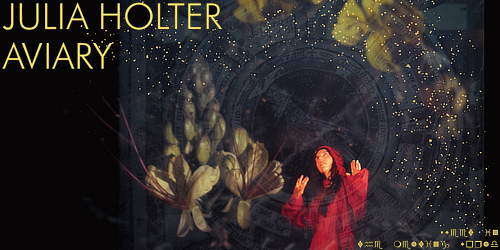




04.07.20
04.07.20
04.07.20
04.07.20
Looking forward to reading through properly in the soon
04.07.20
04.07.20
04.07.20
04.07.20
04.07.20
04.07.20
04.07.20
04.07.20
*on
Darn autocorrect (also why cant you edit comments on blog posts)
04.07.20
04.07.20
04.07.20
04.07.20
04.07.20
04.07.20
04.07.20
04.07.20
04.07.20
04.07.20
04.07.20
There is good progress occurring here, hats off!
04.07.20
my genuine exact reaction upon seeing it made the list but many seem to actually enjoy it so more power to em
04.07.20
04.07.20
04.07.20
You'll be happy to know I voted for it purely based on your favourite lingerie line from Desire Gets in the Way.
04.07.20
04.07.20
04.07.20
04.07.20
Shocked that Daughters is this low tho
04.07.20
04.07.20
04.07.20
04.07.20
04.07.20
04.07.20
for real. recency bias or what?
04.07.20
04.07.20
04.07.20
04.07.20
04.07.20
04.07.20
04.07.20
Weirdly, no, I don't think. Like, a lot of the people who voted ATF aren't even huge OTIP fans I don't believe. Think it might be an age thing, honestly, album just resonated with certain people more.
04.07.20
04.08.20
04.08.20
(finally checked out The Menzingers) (good shit imo)
04.08.20
04.08.20
all me
04.08.20
04.08.20
04.08.20
04.08.20
Scrolls down
04.08.20
04.08.20
04.08.20
04.09.20
04.09.20
04.10.20
05.24.20